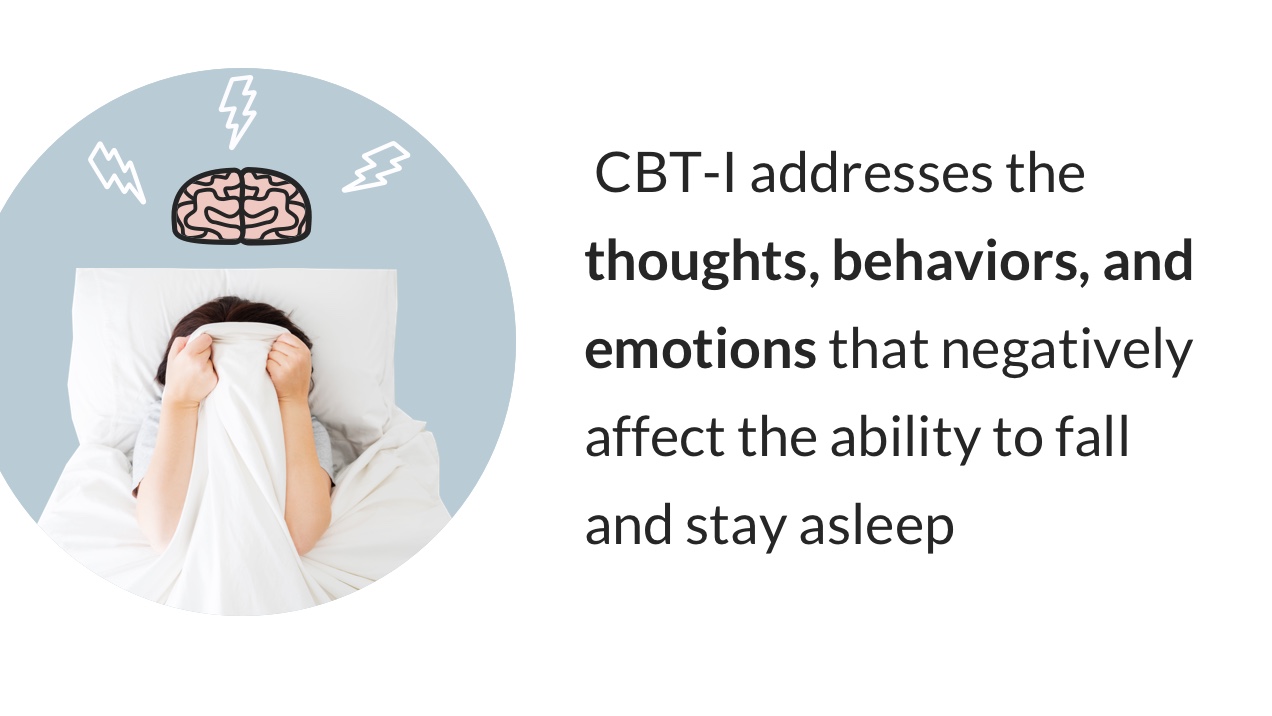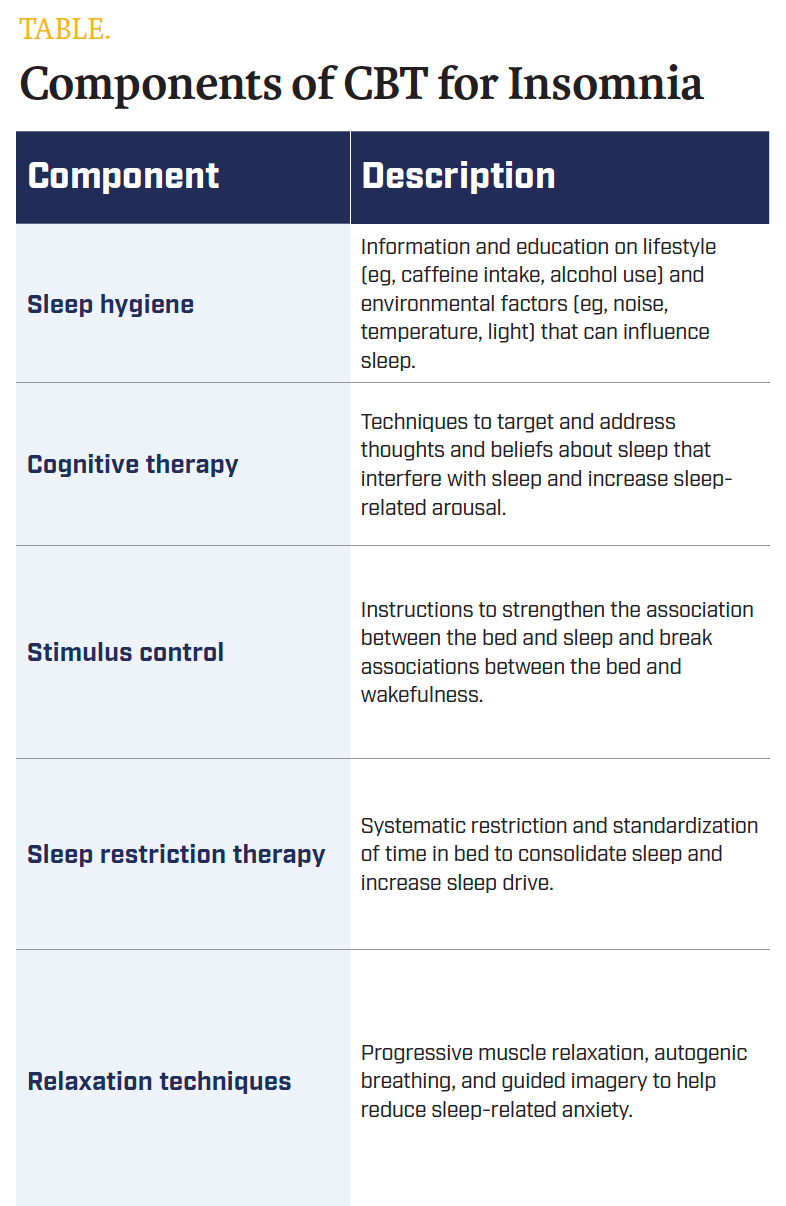

Cognitive Behavioral Therapy for Insomnia. Cognitive behavioral therapy for insomnia (CBTI) is a 4- to a 6-session treatment program that can help people who have difficulty falling asleep, staying asleep, or find that sleep is unrefreshing.

Digital Cognitive Behavioral Therapy (dCBT) for Insomnia: a State-of-the-Science Review. 2022 64:101646.Īmerican Academy of Sleep Medicine. Background: This study is one of the first randomized controlled trials investigating cognitive behavioral therapy for insomnia (CBT-I). Effects of cognitive behavioral therapy for insomnia (CBT-I) on quality of life: A systematic review and meta-analysis.
Cognitive behavioral therapy for insomnia part 1 trial#
Treating Acute Insomnia: A Randomized Controlled Trial of a “Single-Shot” of Cognitive Behavioral Therapy for Insomnia. Cognitive Behavioral Therapy for Chronic Insomnia: A Systematic Review and Meta-analysis. Low-intensity Cognitive-behavioural Therapy for Insomnia Study Type : Interventional (Clinical Trial) Actual Enrollment : 210 participants Allocation. Behavioral therapy works best for insomnia. Management of Chronic Insomnia Disorder in Adults: A Clinical Practice Guideline From the American College of Physicians. Qaseem A, Kansagara D, Forciea MA, et al. Cognitive-Behavioral Therapy for Insomnia: An Effective and Underutilized Treatment for Insomnia. The study researchers contend that more research needs to be done to fully understand the effectiveness of CBT-i. Furthermore, they found no evidence that digital (apps and websites) CBT-i was effective. However, according to the study researchers, the effect was modest, not strong.

Even this one session was effective for between 50% and 60% of patients. Cognitive Behavioral Therapy for Insomnia (CBT-I) is effective for. In the study, patients were given one session of CBT-i, along with an informational pamphlet. MODERATION OF EFFICACY OF SLEEP TREATMENT FOR ADOLESCENTS 1. A randomized control trial published in a 2015 issue of Sleep found that even a “single shot” of CBT-i had benefits.Effectiveness was sustained over time and there were no adverse effects of treatment. Typically, CBT-I is equally or more effective than sleep medications. Cognitive behavioral therapy for insomnia (CBT-I) can help you control or eliminate negative thoughts and actions that keep you awake and is generally recommended as the first line of treatment for people with insomnia. A 2015 systematic review and meta-analysis published in Annals of Internal Medicine found that CBT-i is an effective treatment for adults who live with insomnia. Cognitive behavioral therapy for insomnia.


 0 kommentar(er)
0 kommentar(er)
